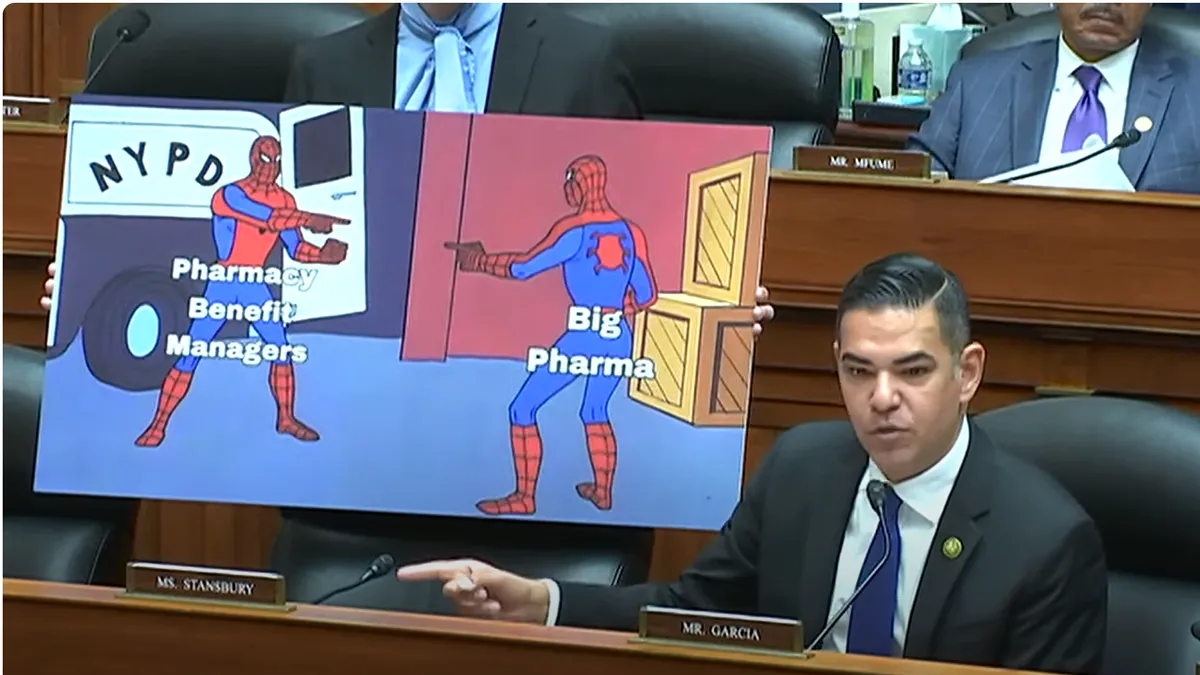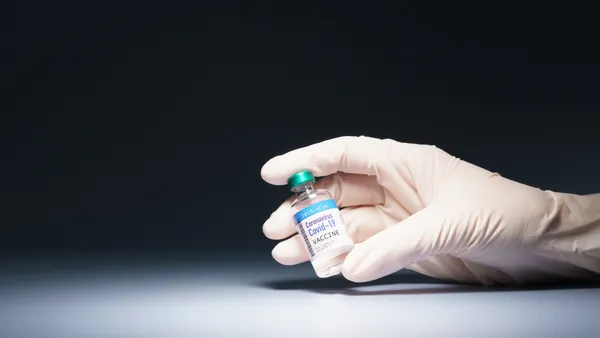Dr. Vinay Prasad, the controversial head of the FDA office that oversees vaccines and gene therapy, has abruptly left the agency after less than three months on the job.
Andrew Nixon, a spokesperson for the HHS, confirmed Prasad’s departure in an emailed statement Tuesday. “Dr. Prasad did not want to be a distraction to the great work of the FDA in the Trump administration and has decided to return to California to be with his family,” Nixon wrote. “We thank him for his service and the many reforms he was able to achieve in his time at the FDA.”
The news was reported earlier by the Pink Sheet and Endpoints News.
Prasad’s exit marks a sudden end to his tumultuous tenure as director of the FDA’s Center for Biologics Evaluation and Research, with in addition to vaccines and some genetic medicines also reviews blood products.
A prolific academic and longtime critic of U.S. drug policies, Prasad was appointed as the head of CBER on May 6. At the time, Commissioner Dr. Martin Makary called his hiring a “significant step forward” for CBER, as Prasad brought the “scientific rigor, independence and transparency” the office needed, he claimed.
Makary later named Prasad as the FDA’s chief medical and scientific officer, in addition to his role at CBER.
Prasad was a vocal opponent of his predecessor Dr. Peter Marks, who ran CBER for nearly a decade before resigning in March after a dispute with HHS Secretary Robert F. Kennedy Jr. Marks championed regulatory flexibility while at the FDA and, as head of CBER, oversaw the review and approvals of COVID-19 vaccines as well as dozens of cell and gene therapies. Prasad previously criticized many of those decisions and, notably, had castigated Marks for overruling FDA reviewers in clearing Sarepta Therapeutics’ Duchenne muscular dystrophy gene therapy Elevidys.
Prasad’s appointment had raised questions among many biotech companies and investors that FDA standards might be shifting. After joining the FDA, Prasad quickly worked with Makary to establish stricter approval guidelines for COVID-19 vaccines. He also three times stepped in to overrule other agency reviewers in issuing narrower-than-requested clearances for COVID shots developed by Moderna and Novavax.
At a round table meeting hosted by the FDA in early June, Prasad attempted to ease concerns CBER might be less flexible under his watch in regulating gene therapies for rare conditions.
“We understand that progress is not always made in a single leap,” he said. “We will consider incremental steps forward, because those add up.”
A month later, the FDA rejected a Duchenne cell therapy from Capricor Therapeutics that Prasad reportedly scrutinized. Shortly afterwards, the FDA engaged in an unusual public standoff with Sarepta over its Duchenne gene therapy Elevidys. Following the deaths of two Elevidys recipients — as well as the death of a study volunteer who received a different gene therapy — the agency asked Sarepta to halt all shipments of its treatment. After initially defying the request, Sarepta agreed, and published reports suggested the company might need new safety data before the FDA would allow Elevidys back on the market.
But in the ensuing days, Prasad was targeted by right-wing influencer Laura Loomer, other conservative commentators and in op-eds published in The Wall Street Journal. One Journal op-ed criticized him as being a “Bernie Sanders acolyte in MAHA drag” and a “one-man death panel.” Another argued his decisionmaking suggested he believes “people can’t be trusted to make their own decisions about risks and benefits.”
When the FDA suddenly allowed Sarepta to resume some shipments of Elevidys on Monday, some Wall Street analysts speculated higher-ups within the Trump administration had stepped in.
“We wouldn’t be surprised to see a resignation in the short term,” Baird analyst Brian Skorney wrote in a note to investors on Monday.












